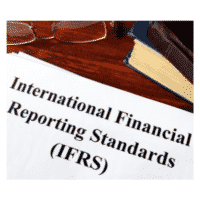Duration: 15 Hours
Timing: Flexible
Accounting for Non-Accountants (AFNA) Training
Course Overview
AFNA: Accounting for Non-Accountants is a practical and easy-to-follow training course designed specifically for professionals who do not have a background in accounting but are responsible for making financial decisions or managing budgets. Whether you’re a manager, business owner, startup founder, or part of a finance team without formal training in accounting, this course equips you with the essential knowledge and tools to confidently understand and work with financial data.
This accounting course for beginners covers the foundations of financial accounting, focusing on key concepts such as the accounting cycle, double-entry bookkeeping, financial statements, and IFRS accounting standards (International Financial Reporting Standards). It’s ideal for non-finance professionals who want to interpret financial reports, understand how money moves through a business, and communicate effectively with accountants or auditors.
What You Will Learn
- Understand what accounting is and how it supports effective business decision-making.
- Grasp essential accounting terminology and the structure of the accounting cycle.
- Identify the key principles and standards under IFRS that govern accounting practices worldwide.
- Learn how to record and process business transactions using the basic accounting equation and double-entry bookkeeping system.
- Understand the components of the four primary financial statements:
- Balance Sheet
- Income Statement (Profit and Loss Statement)
- Statement of Cash Flows
- Statement of Changes in Equity
- Read and analyze financial reports to assess a business’s financial health and performance.
- Gain awareness of modern automated accounting systems and their role in simplifying financial processes.
Who Should Attend?
This course is suitable for professionals from all industries and sectors who need a working knowledge of accounting but have no formal training. It’s perfect for:
- Non-accountants working within finance, operations, or administration teams
- Entrepreneurs, start-up founders, and small business owners
- Budget managers and department heads
- Project managers and procurement professionals
- Executive assistants and office managers
- Anyone seeking to improve their financial literacy for career development
Course Outline
The Accounting for Non-Accountants (AFNA) course is structured into clear, practical modules that guide learners step-by-step through the accounting process:
- Introduction to Accounting for Non-Accountants
- Definition and purpose of accounting in business
- Role of accounting in strategic decision-making
- Introduction to key accounting terms and jargon
- The International Financial Reporting Standards (IFRS)
- Overview of IFRS and its global importance
- Key accounting principles and how they are applied
- The Accounting Cycle and Transaction Processing
- Understanding the full cycle from transactions to financial statements
- Overview of source documents, journal entries, ledgers, and trial balance
- Preparing Financial Statements
- Step-by-step process for compiling:
- Income Statement
- Balance Sheet
- Statement of Cash Flows
- Statement of Changes in Equity
- Reading and Interpreting Financial Reports
- Analyze balance sheets to determine business strengths and liabilities
- Use income statements to evaluate profitability
- Understand cash flow statements to monitor liquidity and operational efficiency
- Basics of Bookkeeping and the Accounting Equation
- Introduction to the Double-Entry Bookkeeping System
- Assets = Liabilities + Equity – explained in plain language
- Automation in Accounting
- Introduction to accounting software and cloud-based systems
- How digital tools simplify bookkeeping and financial management
Career Path & Benefits
By completing the AFNA Training Course, participants will gain a solid foundation in accounting that supports a variety of roles across industries. This knowledge can serve as a stepping stone toward further professional development or formal accounting qualifications.
Career benefits include:
- Enhanced ability to manage budgets and control costs
- Improved communication with finance teams and accountants
- Greater confidence in financial decision-making
- Added value in management, operational, and administrative roles
- Preparation for further studies and career in finance, accounting, or business management
Why Choose Optimizer Middle East for AFNA Training?
Practical, Beginner-Friendly Approach
At Optimizer Middle East, AFNA – Accounting for Non Accountants is simplify accounting for non-financial professionals. Our hands-on training style ensures that complex financial concepts are explained clearly and in everyday language—no prior accounting background needed.Expert Trainers with Real-World Experience
Our instructors are seasoned professionals with both academic qualifications and real-world business experience. They understand how to connect accounting principles to practical business situations, making learning immediately applicable.Customized for Your Industry Needs
We tailor our sessions to reflect the financial realities of your specific industry—whether you’re in healthcare, retail, construction, or government—so the training is not just theoretical, but highly relevant.Interactive Learning Format
Our sessions go beyond lectures. With practical exercises, real-life case studies, and group discussions, participants actively engage in learning, building both competence and confidence.Flexible Delivery Options
Whether you prefer in-person, online, or corporate onsite training, we offer flexible formats to accommodate your team’s schedule and needs.Trusted by Professionals Across the UAE and GCC
Optimizer Middle East is a recognized name in professional development, having trained thousands of professionals across various industries in the region.Pathway to Professional Growth
Completing your AFNA training with Optimizer opens the door to further qualifications and career advancement in finance, business management, and leadership.




